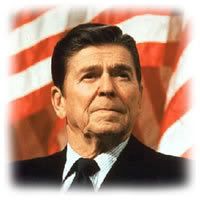Post by MARIO on Mar 1, 2006 19:29:27 GMT -8
U.S.-China Trade Is a Win-Win
Tariffs and other protectionist measures would be a disaster.
By Phil Kerpen
The liberalization of trade between the U.S. and China has been a stunning success for both countries. For China, integration into the world economy has brought sustained 10 percent economic growth, lifting a stunning 400 million people out of poverty over the past two decades, according to World Bank estimates. In the U.S., we’ve enjoyed a low-price retailing revolution, dramatically increasing real standards of living for moderate- and middle-income Americans alongside a decade of zero inflation in import-heavy market segments.
Despite this achievement, some U.S. senators, led by Democratic Sen. Charles Schumer of New York, are pushing huge tariff and other protectionist measures against China. Such policy would be a disaster. A tariff would be a highly regressive tax hike — prices on many consumer products could go up by as much as a third, hitting the poor and middle-class hard. It would also prompt Chinese retaliation, risking a trade war that could send both economies into recession. Because the U.S. and China have combined to account for fully half of global economic growth over the past four years, the rest of the world would likely tumble into recession as well.
The overall economic benefits of free trade are clear as a matter of historical record. Global economic growth has accelerated over the last fifty years, coinciding with the liberalization of international trade. While the world economy has expanded rapidly, the benefits have not been evenly distributed. A study conducted by the Heritage Foundation and the Wall Street Journal over the past seven years found that countries that trade freely have had much stronger economic performance than relatively closed countries, which have grown slowly or not at all.
Recent alarmism from the neo-mercantilists has fixated on the trade deficit. These critics are off the mark both factually and conceptually. As a factual matter, Chinese imports are still relatively modest in the context of overall trade and the U.S. economy. In 2005, China accounted for less than 15 percent of our overall imports and less than 2 percent of U.S. gross domestic product.
That Americans choose to spend 2 percent of what we earn on imports from China is no cause for alarm, even if trade deficits were, in concept, significant. They are not. Trade deficits, as a concept, are politically dangerous but economically benign.
When a Chinese company sells a product to an American company, the Chinese company gets U.S. dollars in return. The Chinese company has two choices for how to spend those dollars: If it buys products and services from the U.S., then exports equal imports and there is no deficit; if instead it chooses to invest in dollar-denominated assets, such as real estate, shares of corporate stock, mortgage-backed securities, or U.S. Treasury bills, we call the amount of that investment a trade deficit.
READ THE REST:
www.nationalreview.com/script/printpage.p?ref=/nrof_comment/kerpen200603010930.asp
Tariffs and other protectionist measures would be a disaster.
By Phil Kerpen
The liberalization of trade between the U.S. and China has been a stunning success for both countries. For China, integration into the world economy has brought sustained 10 percent economic growth, lifting a stunning 400 million people out of poverty over the past two decades, according to World Bank estimates. In the U.S., we’ve enjoyed a low-price retailing revolution, dramatically increasing real standards of living for moderate- and middle-income Americans alongside a decade of zero inflation in import-heavy market segments.
Despite this achievement, some U.S. senators, led by Democratic Sen. Charles Schumer of New York, are pushing huge tariff and other protectionist measures against China. Such policy would be a disaster. A tariff would be a highly regressive tax hike — prices on many consumer products could go up by as much as a third, hitting the poor and middle-class hard. It would also prompt Chinese retaliation, risking a trade war that could send both economies into recession. Because the U.S. and China have combined to account for fully half of global economic growth over the past four years, the rest of the world would likely tumble into recession as well.
The overall economic benefits of free trade are clear as a matter of historical record. Global economic growth has accelerated over the last fifty years, coinciding with the liberalization of international trade. While the world economy has expanded rapidly, the benefits have not been evenly distributed. A study conducted by the Heritage Foundation and the Wall Street Journal over the past seven years found that countries that trade freely have had much stronger economic performance than relatively closed countries, which have grown slowly or not at all.
Recent alarmism from the neo-mercantilists has fixated on the trade deficit. These critics are off the mark both factually and conceptually. As a factual matter, Chinese imports are still relatively modest in the context of overall trade and the U.S. economy. In 2005, China accounted for less than 15 percent of our overall imports and less than 2 percent of U.S. gross domestic product.
That Americans choose to spend 2 percent of what we earn on imports from China is no cause for alarm, even if trade deficits were, in concept, significant. They are not. Trade deficits, as a concept, are politically dangerous but economically benign.
When a Chinese company sells a product to an American company, the Chinese company gets U.S. dollars in return. The Chinese company has two choices for how to spend those dollars: If it buys products and services from the U.S., then exports equal imports and there is no deficit; if instead it chooses to invest in dollar-denominated assets, such as real estate, shares of corporate stock, mortgage-backed securities, or U.S. Treasury bills, we call the amount of that investment a trade deficit.
READ THE REST:
www.nationalreview.com/script/printpage.p?ref=/nrof_comment/kerpen200603010930.asp



